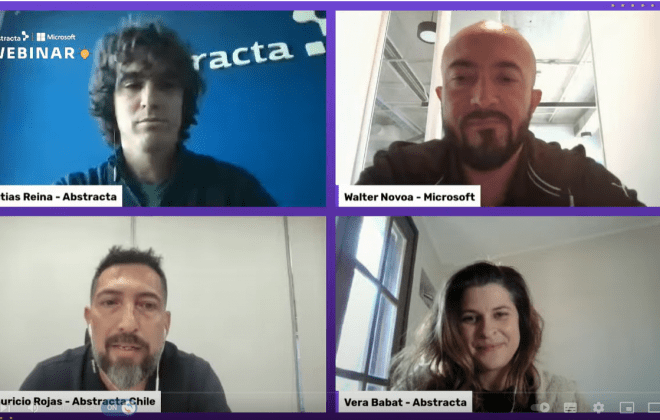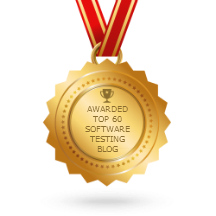How to make a chatbot? In this article, we tell you how we did it. Take a look at our unique approach to integrating GPT into our operations through a self-hosted and secure private new AI chatbot system that has enabled our company to experiment faster and more securely.
In an age where artificial intelligence (AI) is reshaping industries and revolutionizing how we work, businesses are feeling the pressure to keep pace. The urgency is not just to catch up but to innovate, to be at the forefront of this exciting frontier. A new paradigm is emerging, where AI forms the core of decision-making processes, customer interactions, and even creative endeavors.
The traditional models of business are being upended, and all sizes of companies are actively brainstorming how to apply Generative Intelligence Augmentation (Gen-IA) to transform their business models. They seek to engage their leadership teams in this exciting transition, fostering a culture of innovation and adaptability. The stakes are high, and the rewards are potentially immense.
Yet, the journey toward AI-driven success is not straightforward. It requires a robust understanding of technology, a clear vision, and a willingness to experiment and learn. As we embarked on this journey at Abstracta, we recognized the need to share our insights, our triumphs, and our challenges.
Whether you’re an AI enthusiast, a business leader, or someone looking to gain insight into the world of AI, this article aims to provide you with valuable information. It highlights the common problems companies face when wanting to experiment using ChatGPT, and how to do so in a safe and controlled manner.
Join us in this insightful read, and discover what you can achieve!
The Very Beginning: Experimentation
The path of integrating AI within a business must be filled with exploration, learning, adaptation, and, most of all, experimentation. When we started, we knew that traditional methods wouldn’t suffice. We needed to be nimble, creative, and ready to learn from both our successes and failures.
This hands-on approach allows teams to have a real sense of their capability to solve specific tasks and a clear understanding of AI’s abilities and strengths. Some businesses have chosen to use ChatGPT directly, while others have leveraged a Microsoft Azure instance or API to ensure data privacy.
In our case, over the early stages, we faced an array of questions. How could we ensure that our experimentation aligned with our business goals? How could we test various models without jeopardizing our budget or security? The answers were not always clear, and at times, the complexity seemed overwhelming. Yet, we knew that through trial and error, continuous learning, and adaptation, we could forge the path we were seeking.
Our initial experiments opened doors to new insights, challenges, and opportunities. We learned about the subtleties of different models, the nuances of integrating AI into our existing systems, and the importance of collaboration across departments. We realized that this was not a solitary journey but a collective endeavor, where diverse perspectives and skills were vital.
The Challenge
With experimentation well underway, we were invigorated by the new opportunities that lay before us. But as with any innovative venture, the path was not without its obstacles.
The implementation of AI within our organization required careful consideration of numerous challenges. Safe and effective experimentation before fully committing to AI is a complex undertaking. It requires a multi-faceted approach, addressing core needs such as:
- 🔐 Security & Privacy: Ensuring secure data usage and chat access.
- 💸 Budget control: Managing costs, as GPT-4 can become really expensive when you start using it in earnest.
- 🌈 Multi-Model Approach: Enabling testing of different models, like Llama v2 or Vicuna, within the same chatbot.
- ♻️ Prompt & Knowledge Sharing: Facilitating prompt effectiveness and knowledge transfer across the organization. Once someone finds a great prompt for solving a specific task, it needs to be organized, categorized, and shared.
The Solution: Building a New AI Chatbot
Finding the right solution was not just a matter of overcoming obstacles but leveraging them as learning opportunities. Over lots of experiments, registering, discussing, and sharing, we understood that the unique challenges we faced were signposts guiding us toward a more robust and effective integration of AI. Our solution needed to be as flexible and dynamic as the challenges it was meant to address.
How to Make a Chatbot?
For those who are not running a Microsoft Azure Subscription, one of the most affordable options is to self-host their own GPT-like chatbot and configure Gen AI providers behind it.
With this in mind, at Abstracta we tried some repositories with promising results, but we still needed an extra layer of security, analytics, and model flexibility. This led us to begin an open-source collaboration to provide the most needed features: A self-hosted, secure, and controlled private chatbot.
Self-hosted, secure & controlled private chatGPT
The Outcome: A New AI Chatbot
Our journey has taught us that with the right approach, technology can be more than a tool; it could be a partner in innovation. Our solution addressed the concerns with the following features:
- 🏢 Single Sign-on: Limiting access to our domain users.
- 🔐Safety: By using Azure AI foundation models, or self-hosted models, we make sure that our data is safe and not being used for training.
- 💸 Budget Control: Users typically use the chat in chunks, so we wanted to cap the budget at a maximum of $ per user/month.
- ♻️ Prompt Sharing: We started experimenting with Vidura, but then we realized that sharing prompts within the chat interface can lead to a better user experience and engagement.
- 📊 Analytics: Monitoring chat usage while keeping conversations private and safe.
- 🚀 Multi-Model: Simplifying the addition of different models that are available, like Llama v2 from Meta. This enables us to easily add another model behind the chat and use it by just selecting the model from a combo box.
The result? A platform that enables our company to experiment faster and safer, and boosts collaboration between areas and leaders. This journey has not just been about building a system but forging a new path for our organization. It’s about redefining what’s possible, pushing the boundaries, and transforming challenges into opportunities for growth and innovation.
Have you faced similar challenges or evaluated how to create a new AI chatbot? If you are looking for help with this, don’t hesitate to contact us to discuss how we can help you grow your business. We have a full Innovation team dedicated to exploring these technological frontiers.Follow us on Linkedin & X to be part of our community!
Fabian Baptista
Related Posts
How to Use Generative Artificial Intelligence to Empower Your Business
The massification of the use of Generative Artificial Intelligence is leading to its democratization. This can empower companies in unimaginable ways. How can we take advantage of all its benefits? We invite you to review everything we talked about in our last webinar, organized by…
Overcome Black Box AI Challenges
Optimize black box AI systems with Abstracta. Learn how tailored testing strategies enhance trust, accuracy, and innovation across industries.
Leave a Reply Cancel reply
Search
Contents








